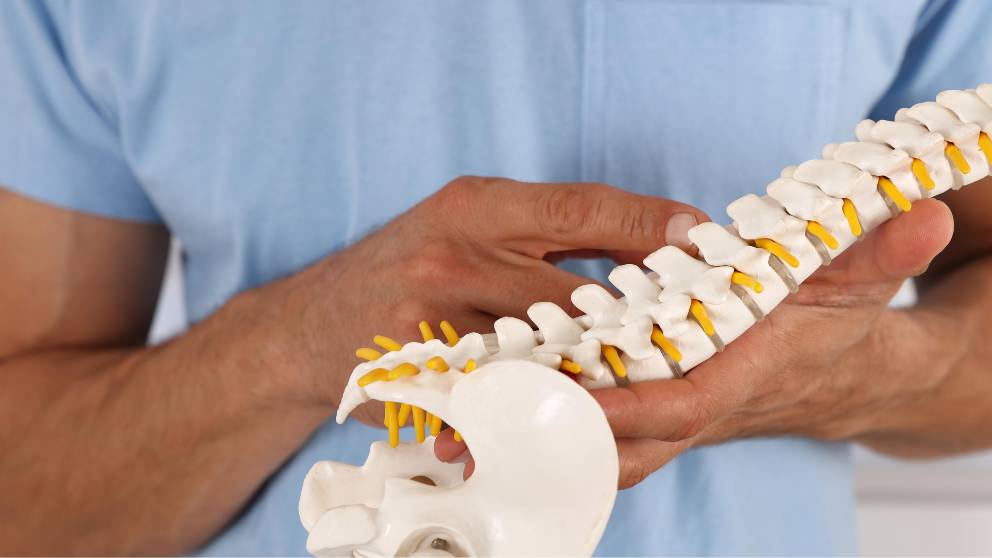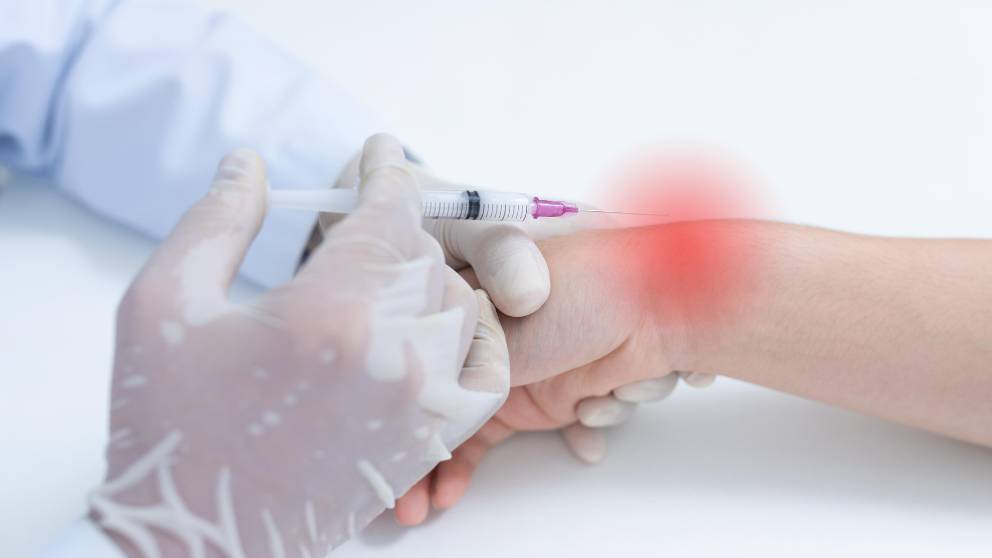A pinched nerve happens when pressure from neighboring structures is too much. Tissues next to the nerve such as muscles, tendons, cartilage, or bones can put too much pressure on the nerve and disrupt its normal function. This excess pressure on the nerve causes can cause symptoms like:
- Pain
- Weakness
- Numbness
- Tingling
- Burning
- Pins and needles
Usual areas that pinched nerves occur include the:
- Spine
- Wrist
- Arm
- Hip
Table of Contents
ToggleWhat Caused a Pinched Nerve?
Any structure next to a new of that becomes enlarged again for pressure on a nerve and lead to pinched nerve symptoms. Some of the most common causes include:
- Herniated disc in the back
- Osteoarthritis(Including from trauma)
- Inflamed tendons and muscles from repetitive movements (For example carpal tunnel syndrome)
- Rarely: Infection, tumors, scar tissue, fluid collections.
Risk factors for pinched nerve include:
- Arthritis
- Traumatic injury leading to arthritis or malformation
Weight gain - Repetitive actions
- Tumor
- Pregnancy
What Treatments are There for a Pinched Nerve?
For minor pinched nerve symptoms you can try some home remedies like:
- Sleep and rest
- Avoid repetitive movements
- Try anti-inflammatory drugs (Nsaids)
- Change posture
- Better ergonomics
- Stretching
- Ice packs
If pain persists or returns you May need evaluation and other treatments.

How is a Pinched Nerve Diagnosed?
For diagnosis a thorough history and physical exam Will be performed. Next imaging and other studies Will be ordered to help determine the cause of your pain including:
- X-rays
- CT (Computed tomography) Scan
- MRI (Magnetic resonance imaging)
These studies reveal the normal and abnormal structures in your body that May be causing your pinched nerve and May be a Target for treatment. Health providers May also obtain an electromyography (Emg) Study which measure how nerves are performing and whether there is compression or some other process affecting your pinched nerve.
Imaging & Interventional Specialists – Your Non-surgical Pinched Nerve Solution
Imaging & interventional specialists are experienced and successful in dealing with joint pain. Pinched nerve treatments can involve:
- Weight loss
- Exercise, stretching, yoga, physical therapy
- Ergonomics
- Medications including nsaids
- Corticosteroid joint injections
- Nerve ablations
- Specialized “PINHOLE” procedures blocking (Embolizing) The arteries supplying the inflamed area and causing the nerves to register pain
Our specialists Will determine which treatment pathway Will be best for you.
How Do Imaging & Interventional Specialists Find Out Which Treatment is Best?
The imaging & interventional specialist Team Will obtain your medical history, perform a physical exam, review imaging and medications, and what methods you have used in the past to attempt to deal with your pinched nerves(s). If needed we Will obtain other Lab tests, imaging studies including mris and consult with your other health providers to develop a customized treatment plan.
What Advanced “PINHOLE” Procedures Does Imaging & Interventional Specialists Offer for Joint Pain?
Imaging and interventional specialists can treat your pinched neve(s) With the usual treatments that include:
- Spines injection including facet joint, epidural and transformational
- Radio frequency ablation of the nerves causing you pain
Pinched nerve treatment often involves placing a Tiny needle into the area of the nerve that is causing your pain and injecting corticosteroid with local anesthetic. These can provide significant relief usually for a certain amount of time.
If pinched nerve injections give you relief, then radio frequency ablation of the nerves in question can be considered. This involves placing a needle alongside the nerve in question. An electrical current produced by a radio wave heats up a small, precise area which blocks the nerve from transmitting pain signals. This can provide longer relief. Nerves treated by radio frequency ablation include the facet joints of the spine, sacroiliac joints and the knee.

However, there are 2 specialized “PINHOLE” procedures that imaging and interventional specialists provide in the treatment of knee pain and shoulder pain, specifically “frozen shoulder”.
- Geniculate artery embolization
- Frozen shoulder embolization
Geniculate artery embolization involves placing a tiny catheter inside the artery feeding the inflamed part of your knee joint causing pain and introducing tiny beads that block blood supply to this area. This causes the inflammation and pain to decrease. This procedure can be used to treat knee pain after joint surgery as well.
Frozen shoulder results from inflammation, scarring and shrinkage of the capsule around the normal shoulder joint. It is also called adhesive capsulitis. Frozen shoulder embolization, like geniculate artery embolization, involves placing a Tiny catheter inside your artery feeding the inflamed Part of your shoulder causing pain and introducing Tiny beads that block blood supply to this area. This causes decrease in inflammation and pain.
Imaging & Interventional Specialists “Pinhole” Procedures: Fast Recovery, Less Risk, Less Pain, Comfortable Setting
Our experienced board-certified specialists successfully perform “PINHOLE” procedures every day offering this region leading, state-of-the-art solutions to peripheral arterial disease.. Our non-surgical image guided procedures are cutting edge technology without the cutting, without the scalpel. You leave with a band-aid!
- Procedures are usually done in a comfortable outpatient setting with familiar friendly staff
- Pinhole procedures offer fast recovery, less risk, and less pain
Why Imaging & Interventional Specialists?
Imaging & interventional specialists are leaders in interventional radiology and experts in the non-surgical procedures that Will address your pinched nerve. Using state-of-the-art equipment, our experienced board-certified specialists are focused on your best outcome.

It is important to determine what is causing your joint pain. At imaging & interventional specialists, board-certified physicians offer in-house testing to determine the cause and develop an individualized treatment program for your pinched nerve.

